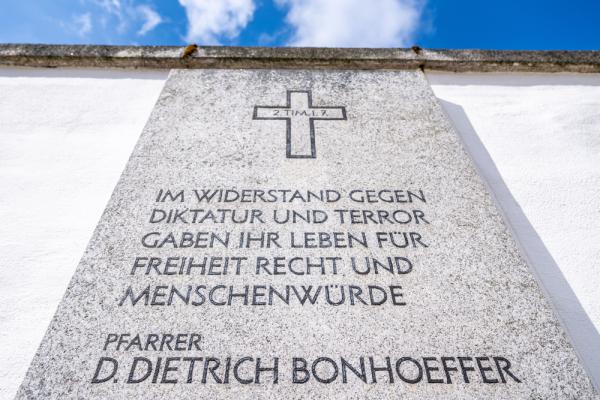New York City Comptroller Brad Lander was arrested by masked Immigration and Customs Enforcement agents on June 17. At a lower Manhattan courtroom, Lander and his staff were attempting to escort a migrant after his court hearing. Seen repeatedly asking ICE agents to produce a judicial warrant, and asserting that they couldn’t arrest an American citizen, Lander was roughly detained and later released, the most recent in a string of Democratic politicians arrested by federal authorities.
As the first few months of Trump’s presidency have amounted to a comprehensive assault on democratic institutions and vulnerable communities, the current situation we find ourselves in is a natural outgrowth of this administration’s authoritarian governance.
Masked agents are kidnapping students off the street; a false commitment to fighting antisemitism has served as a pretext to destroy higher education; protests in LA are being erroneously framed as an insurrection to justify more state violence; 20,000 National Guard troops are being enlisted for the deportation machine, all while the administration regularly flouts court orders and develops the infrastructure of a police state. The actions of ICE, especially, stand as a federal fulfillment of the fascistic energies we saw in 2017 at Charlottesville when violent white supremacists descended on the city. And while fascism is not fully victorious, it is fully here and sitting in the highest seats of power.
This isn’t the church’s first encounter with fascism, and many American Christians are seeking models of political faithfulness in response to the rapid creep of political danger. Whenever it appears that the church is primed to confront fascist politics, references to Dietrich Bonhoeffer and the Confessing Church become central topics of discussion. Across the theological and political spectrum, the legacy of this martyred German pastor-theologian and the Confessing Church — the ecclesial movement Bonhoeffer is typically associated with — are seen as examples worthy of emulation.
This invocation isn’t limited to one political persuasion. Whether it is diehard Trump supporters, anti-Trump evangelicals, or those asking if we are in a “Bonhoeffer moment,” each party invokes Bonhoeffer or the Confessing Church to emphasize the urgency of the moment. Some interpretations are more grounded than others — for example, theologian Reggie Williams’ engagement is vastly superior to Eric Metaxas’— but as scholars have noted, the political usage of Bonhoeffer and the Confessing Church has become increasingly varied as American politics has become more polarized.
This polarization can cause a flattening wherein the Confessing Church is often wrongly reduced to a story of political resistance. What is historically true of Bonhoeffer individually — an early critic of Nazism, an opponent of the Nazi state, and a public, albeit imperfect, defender of Jewish communities — is often wrongly transposed onto the broader Confessing Church. As we search for models in our own fascist moment, what can we learn from the Confessing Church?
The Confessing Church was a complex movement composed of people with disparate interests, moderates and radicals; there were moments of cowardice, courage, and small acts of subversion. But the Confessing Church was one thing in particular: a failure. With its active “policy of silence” on the persecution of Jews, participation in the use of baptismal records to implement the Reich Citizenship law, deep support and participation in the war effort, and “agreement and ambivalence” regarding the Nazi’s political program, the Confessing Church is neither an example of faithful Christian politics or anti-fascist action.
The Confessing Church was a complex movement composed of people with disparate interests, moderates and radicals; there were moments of cowardice, courage, and small acts of subversion. But the Confessing Church was one thing in particular: a failure.
Many Christians in Germany welcomed Hitler’s ascent to power. They agreed with and found hope in his promises to restore morality, crush the Left, and revitalize a muscular German nationalism. However, the depth of Christian support varied, and it was the German Christians — a movement of primarily Protestants — who sought to bring the church into complete alignment with the Nazi state. In the summer of 1933, the German Christians won a resounding electoral victory, obtaining the leadership and administration of most of the 28 regional Protestant churches. Later that summer, they adopted the church’s own “racial legislation,” replicating the federal government’s Aryan paragraph and aiming to purge all Christians of Jewish descent from church positions.
This infringement on ecclesial independence jolted an opposition movement into existence. Originally started as the Pastors’ Emergency League, the Confessing Church eventually became a rival ecclesial system which sought a “defensive reaction to the [German Christian’s] hegemonic claims.” Loosely organized around the idea that “the church must remain church,” the Confessing Church was a minority movement. In 1934, at its high-water mark of participation, of the 18,000 Protestant pastors in Germany, around 20% were connected with the Confessing Church.
READ MORE: In L.A., Protesters Practice the Politics of Jesus
Next to its association with Bonhoeffer, the Confessing Church is perhaps most famous for the Barmen Declaration, which was a document largely written by the theologian Karl Barth that rejected the German Christians’ teachings of ecclesial cooperation with the Nazis and blind obedience to the Fuhrer. While it could be read as a statement of “potential resistance,” it was mainly understood as an assertion of ecclesial autonomy in the shadow of the Third Reich. Contrary to popular imagination, the Confessing Church wasn’t a resistance movement to the Nazi state. It was more about church business — synods, theological declarations, seminaries, ordination boards, and governing bodies. While not a monolithic movement, the Confessing Church mainly focused on protecting itself. As former pastor and author Wolfgang Gerlach bitingly notes in his And the Witnesses Were Silent, “For the ‘confessing’ church, confession for its own sake was more important than solidarity with others who were persecuted.”
In 1944, while imprisoned by the Nazis, Bonhoeffer saw this failure clearly, writing, “Our church, which has been fighting in these years only for its self-preservation, as though that were an end in itself, is incapable of taking the word of reconciliation and redemption to humankind and the world.” Because Bonhoeffer was executed before the end of World War II, he didn’t live to see the full extent of the German church’s ethical deterioration. But what Bonhoeffer did see was that much of the Confessing Church was defined by its desire to survive. Such institutional narcissism can’t guide you along the way of Christ.
In our current moment, we have a parallel to German Christians as elements of American Christianity are consolidated into Christofascism, and conservative Christian support for violence manifests in coup attempts and political assassinations. However, we also have our own Confessing Church. Self-professed Christian moderates have even penned a faith statement explicitly modeled as a new Barmen Declaration — Confession of Evangelical Conviction — in response to the “social conflict and political division” of the 2024 election.
Yet, as a fuller history teaches us, there are incorrect conclusions to draw from the Confessing Church. Simply claiming fidelity to Christ doesn’t help you avoid ideological capture or guide you into faithful political action. In fact, the political posture of this loose community — with its continual bothsidesim, framing discipleship as a political panacea, and scolding protesters fighting against fascism — echoes the failures of the original Confessing Church. The politics of this new Confessing Church, which are more antagonistic to those who resist fascism than fascism itself, primarily serve to safeguard visions of ecclesial purity. Faithful action now requires better models and beyond the Confessing Church, there are many stories of courageous resistance against Nazism.
Elisabeth Schmitz, one of the first women to study at the highest reaches of German universities, was a teacher in Berlin as fascism came to power in Germany. In 1933, she corresponded with Barth, hoping to convince him to take a public stand against the persecution of the Jews. Writing with an urgent moral clarity, she stated, “What should we do now? Should we wait until there is something worthy of the name ‘Church’?… We don't have time to wait.” Then, in 1935, she sent a pamphlet to 200 leaders of the Confessing Church, similarly hoping to convince them to advocate for the Jewish community. Again, unheeded, she later would help to smuggle Jews out of Germany, and when this became too dangerous, she hid them in her home.
Schmitz had more than moral clarity about fascism, she had courage. Moral clarity is worthless without courage, and in our moment, life-giving political action requires both.
We need the moral clarity to see ICE for what they are, our own American Gestapo. We need courage — an act of the will — in order to faithfully act upon our moral clarity. Individually, you can hope that — like the protesters in LA — you are ready to blunt and scuttle the horrors seeping out of the cracks of this country. But courage is never supposed to be an individual enterprise. Avoiding the failures of the Confessing Church means that faith communities must become essential infrastructure in supporting courageous actions.
The peculiarities of my own Christian formation growing up meant I was consistently presented with crisis scenarios. If, similar to Columbine, there was a gun held to your head, would you still confess Jesus as Lord? Would you have marched with the Civil Rights movement? During the rise of fascism in Germany, what would you have done? Each historical question was meant to test the density of your moral courage and strengthen the mettle of your faith. But hypotheticals are not always necessary. How would you respond to the rise of fascism? Each of us has our answer, and it is how we are responding now. And as other saints have said, we don’t have time to wait.
Editor’s note: Portions of this article quoting Elisabeth Schmitz’s correspondence were translated from German using DeepL AI translation software and subsequently reviewed for accuracy by human editors.
Got something to say about what you're reading? We value your feedback!





